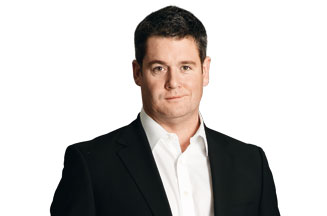You might have felt a slight rumble under your feet last Monday, and heard the faint but unmistakable sound of an unstoppable object coming into contact with an immovable force.
In the US, the epicentre of the collision, the noise must have been deafening. In a marketing version of Godzilla versus King Kong, bulk retailer Costco and Coca-Cola went to war.
For weeks, the two had been negotiating a new supply contract. Last Monday the talks broke down and Costco, the third-biggest retailer in the US, released a terse statement: 'At this time, Coca-Cola has not provided Costco with competitive pricing so that we may pass along the value our members deserve.' This means that Costco will no longer stock Coke, Sprite, Fanta, Powerade or Dasani until the matter is resolved.
Although it is impossible to be sure what took place behind closed doors, it is likely that the two parties approached the pricing discussion with conflicting outcomes in mind.
In the US, Coca-Cola is trying to increase prices to offset the gradual decline in volume sales, so it's possible it tried to ask for more money.
For Costco, facing stiff competition from other big discount players such as Sam's Club and Trader Joe's, the emphasis would have been on Coke dropping its prices. With Costco's profit margins already nerve-shreddingly thin at 3%, a price cut is the only way to ensure it can undercut its competitors.
The two corporate behemoths were set on a collision course and we must now wait to see who will blink first.
Many analysts are betting against Costco. 'This is not going to bully Coke into changing its pricing strategy,' said John Sicher, editor of trade publication Beverage Insights. 'Coke is going to focus on the right price and right market for its products, no matter what.'
I am not so sure. For me, the dispute represents the latest evidence of a tectonic shift in the power balance between manufacturers and retailers.
A decade ago, no major retailer would have dreamed of delisting Coke. The risk of losing customers would simply have been too great. However, times change, and, thanks to retailer consolidation and the growing power of private labels, the balance of power has shifted in Costco's favour.
Just look at the numbers. Costco's 407 US megastores supply about 10% of the US' total soft-drinks consumption, meaning the store is likely to represent somewhere between 5% and 10% of Coca-Cola's $30bn North American sales.
Now turn it around. Costco stocks everything from diamond rings to fine wine to electrical goods. For all its brand equity, Coke accounts only for a fraction of a single percent of Costco's $70bn sales. It is hurt much more than Costco by the falling-out.
Costco could lose shoppers because it no longer stocks Coke and its sister brands. However, Costco's brand is not built on always stocking every possible product and its customers know that.
With its Kirkland own-brand line and preferential terms from a presumably delighted Pepsico, Costco can live without Coke if it has to. Moreover, the rift reinforces its low-cost credentials, and signals its readiness to go in hard to negotiations with other suppliers.
This kind of dispute is breaking out with increasing frequency and, while it is always hard to guess which side will capitulate, retailers seem to be gaining the upper hand.
Expect a press release before Christmas, announcing the return of Coke to Costco, but expect it to be at a price that Costco, not Coke, requested.
Mark Ritson, PPA columnist of the year (business media), is an associate professor of marketing and consultant to some of the world's biggest brands
30 seconds on retailers vs manufacturers
- Delhaize, the Belgian retailer, delisted 250 Unilever brands in 2008 after the latter tried to increase its supply prices. According to research, up to 30% of Delhaize's customers shopped elsewhere for Unilever brands, but a greater proportion replaced the products with those of competitors or Delhaize's own-label lines. The disagreement was settled and the Unilever products returned.
- In 2007, on the eve of the publication of Harry Potter and the Deathly Hallows, publisher Bloomsbury threatened to cancel delivery of Asda's consignment. Asda said this was because the publisher was unhappy about its policy of selling the Potter books half-price. Bloomsbury claimed the dispute resulted from the supermarket's failure to pay its bills. The book went on sale at Asda in the end.
- In 2005 Costco delisted Procter & Gamble's biggest brand, Pampers, from 70% of its stores. The brand was replaced by Huggies after its owner, Kimberly-Clark, agreed to supply it at better terms, as well as manufacturing Costco's own-label nappies and outsourcing the store's nappy-related customer service. This cost P&G an estimated $200m and, a year later, it made concessions to win back the business.
- Aldi has enjoyed remarkable success in Germany despite eschewing top brands, including Coke, which it has not sold for more than 15 years.


